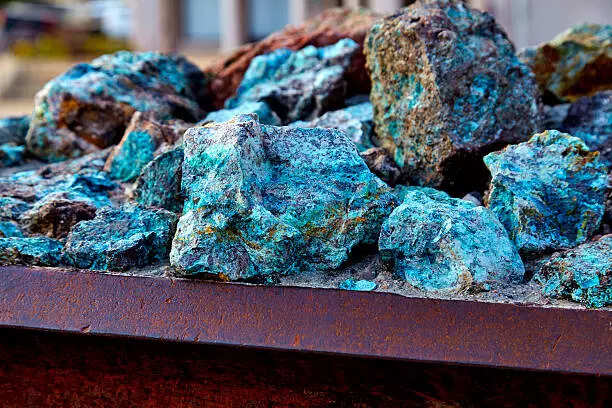
Australia, one of the world’s biggest suppliers of raw minerals, unfurled a landmark strategy on Tuesday that outlines how it will work with investors and international partners to build a critical minerals processing industry for the energy transition.
The Labor government strategy aims to see Australia as a significant producer by 2030 of raw and processed critical minerals that are key to the energy transition, on its path to becoming a renewable superpower.
Supplier of nearly half of the world’s lithium, Australia is a significant producer of rare earths, cobalt, copper, graphite, manganese and other minerals key to the global energy transition.
However those minerals are largely processed in China, including into materials essential in batteries and magnets for products from electric vehicles to missiles. Western nations want to ease China’s grip after supply was disrupted during the COVID-19 pandemic and given tensions over Taiwan.
“The Strategy makes it clear our natural minerals endowment provides a foot in the door, but we must do more to create Australian jobs and capitalise on this unique opportunity,” Resources Minister Madeleine King said in a statement.
The Grattan Institute, a think tank, estimates the critical minerals industry could add more than USD 400 billion to Australia’s economy by 2050, a bigger contribution than the coal industry, Australia’s no.2 export, today.
The government will set up a new international program to attract investment and development partnerships to help local projects link to emerging markets in the United States, the United Kingdom, Japan, Korea, India and the European Union.
As part of Australia’s national reconstruction fund, value added resources projects will have access to A$1 billion and A$3 billion for renewables and low emissions technologies. It will also earmark A$500 million more in support for projects that align with its development policies.
It will push to conquer a skills shortage in mining, automotive and manufacturing that could include skilled migration as well as investing in national discovery of more critical minerals since 80% of the country is under developed.
Sovereign Capability
Australia will track and monitor foreign investment in critical minerals projects to ensure it is not counter to the country’s national interest as it builds up sovereign capability for key technologies.
The government is considering policies that would enable domestic supply of Australian critical minerals for Australian projects, it said, although any future approach must be tailored to the needs of Australia and the global context.
This comes as international companies secure ownership and supply of Australian minerals, particularly lithium and rare earth elements, meaning Australian processors and manufacturers may struggle to access supplies of Australian minerals in future.

